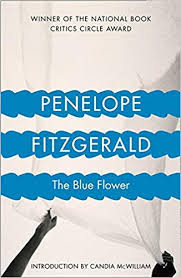
. . . the soups, one made of beer, sugar and eggs, one of rose-hips and onions, one of bread and cabbage water, one of cows’ udders flavoured with nutmeg.
It sounds like a hipster restaurant in Haringey. Or here is whats on offer at a fair they have been looking forward to – “Kesselfleish – the ears, snout and strips of fat from a pig’s neck boiled with peppermint schnapps.” One young lady has no one to take her to the fair, and is commiserated with:
A fine young woman still, what a pity she had no affianced to treat her to a pig’s nostril!
Or here is a mother and her daughter, talking about a guest’s room:
“And there is no chair in the room where he might put his clothes at night.” “His clothes! I have not undressed myself at night, even in summer, for I think twelve years.” “And yet you’ve given birth to eight of us!” cried Sidonie. “God in heaven spare me a marriage like yours!”
In the midst of all this domesticity is the protagonist’s (Fritz) idealistic young desire to be free of earthly things and to find a logic that unites all things. He is inspired at university by the philosopher Fichte:
Fichte was speaking of the philosophy of Kant, which, fortunately, he had been able to improve upon greatly. Kant believed in the external world. Even though it is only known to use through our senses and our own experience, still, it is there. This, Fichte was saying, was nothing but an old man’s weakness
He is a talker and a dreamer, who thinks he can see beyond the everyday reality of things. Here he is talking away to a busy young woman:
…all though he could live without love, he told her, he could not live without friendship. All was confessed, he talked perpetually. Neither the sewing nor the forewinter sausage-chopping deterred him.
So extreme an idealist is he that somehow when he falls in love with this twelve year old, who is not very pretty nor very bright, you somehow believe in his sincerity. It is gross, but to be fair he does not attempt to sleep with her and in any case most women were married at fourteen. It makes no odds, in any case, because she is dead of TB before she is fifteen, after some operations without anaesthetic that are almost as horrifying as the soups above. Fritz marries someone else, but is dead himself in under three years, also of TB; and so are almost all his siblings.
I mean, thank god for BCG. I have not done a good job of explaining this novel, but that is I think because I cannot. I need to re-read it to try and understand it.
